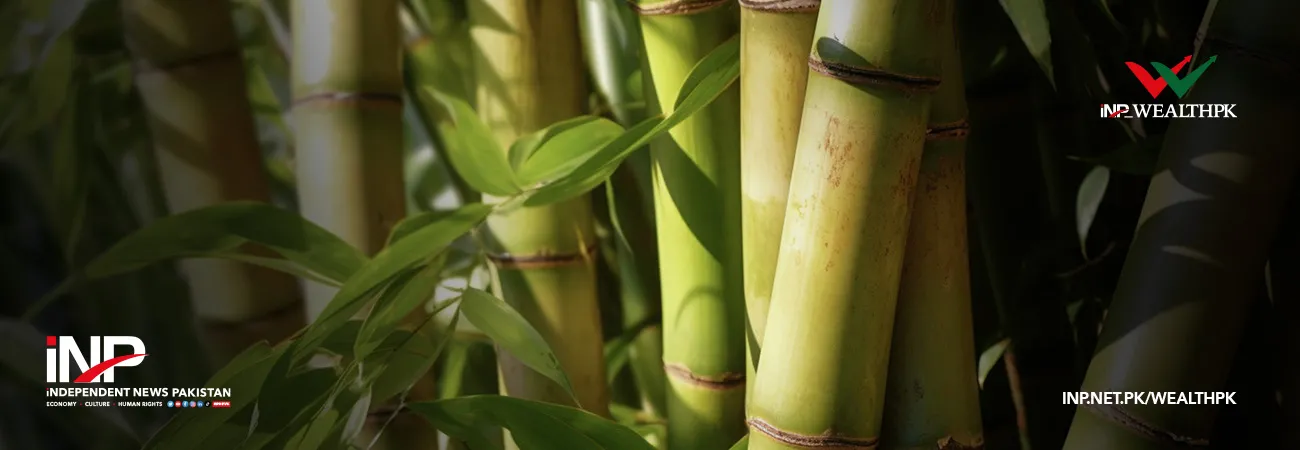INP-WealthPk
Faiza Tehseen
Large-scale bamboo farming is critical in Pakistan to help mitigate climatic impacts, restore the ecosystems and drive economic growth. “Bamboo farming will help decrease the carbon footprint and add to income generation opportunities,” said Muhammad Atif Majeed, Deputy Director of the Pakistan Forest Institute (PFI), Peshawar.

Talking to WealthPK, he said, “Bamboo is the fastest-growing plant across the globe, which makes it a highly effective carbon sink. It sequesters carbon at an impressive rate of 17 tonnes per hectare annually. As compared to other tree forests, a bamboo forest releases 35% more oxygen, making it a significant contributor to atmospheric oxygen. Bamboo matures within three to five years unlike other trees, which usually take 20 to 30 years for maturity.” He said that some bamboo species grow up to 47.6 inches in a single day. “In favourable conditions, certain types of bamboo varieties can even grow over a meter per day. Normally, a new bamboo shoot reaches its full height in less than a year. It naturally cools the air around it up to 8⁰ centigrade in summer.” Atif said, “A few bamboo species are invasive – running bamboo. Non-invasive bamboo species under a proper management system can help to mitigate the environmental impact.
The extensive root network and underground rhizomes contribute vitally to soil stability by preventing soil erosion, enhancing soil health and restoring degraded lands.” He said that bamboo is highly resistant to severe climatic conditions and even can bear droughts and desert environments. “It does not need fertilizer to grow as it sheds its leaves, which further decompose and provide essential nutrients back to the soil. Due to its strength and durability, bamboo is utilised to build bridges and houses. It is also used for scaffolding and as a support for concrete structures.” Talking to WealthPK, Muhammad Saleh Mangrio, Executive Director, Centre for Rural Change, Sindh said, “Bamboo is useful for a variety of domestic and industrial purposes. It is used for furniture making, textile production, paper manufacturing, bioenergy, and as a construction material.” He said as socioeconomic development activities were scarce or limited in the rural areas of Pakistan, versatile uses of bamboo can open new opportunities there.
He said bamboo farming in Pakistan is not only an environmental necessity but it is also important for socioeconomic development. “Degraded lands can be made useful by bamboo farming. That will play a vital role in carbon sequestration, and even money can be earned through manufacturing bamboo-based products.” Saleh said, “An awareness campaign is badly needed concerning the ecological and commercial importance of bamboo farming. To serve the said purpose, all stakeholders, including the relevant government departments, the private sector and even the non-government organisations must play their role.” He said that the widespread bamboo farming in the country can generate handsome revenues and sustain the local economy. “The climatic challenges and increasing marginal/wastelands can be well-utilised by bamboo farming. Establishment of a research and development department is also necessary to develop new bamboo varieties, improve farming techniques and popularise its plantation in the country.”
Credit: INP-WealthPk













